Geography
Our Geography Vision
Here at St Helen’s, the teaching of geography gives pupils an understanding of the world around them, its environments, places near and far, and the processes that create and affect them.

At the heart of our curriculum is the substantive and disciplinary knowledge that children need to prepare them for success in their education journey and to prepare them for work in different industries.
Substantive geography knowledge is the core learning from the disciplines of location, place and human and physical geography.
Disciplinary knowledge involves fieldwork and geographical skills. This allows children to investigate and experience learning outside the classroom. Geographers gather, measure, record and present data.
Disciplinary geography knowledge happens because of substantive knowledge. When children know the established facts, they can start to consider how geographers acquired this knowledge, its degree of certainty and how it is revised.
Our curriculum is based on Development Matters and the National Curriculum.
Geography in EYFS
Our Early Years provision is language rich and has been carefully created to provide a range of opportunities both indoor and outdoor to help develop essential knowledge and skills.
By the end of Key Stage 1
Pupils should develop knowledge about the world, the United Kingdom and their locality. They should understand basic subject-specific vocabulary relating to human and physical geography and begin to use geographical skills, including first-hand observation, to enhance their locational awareness.
Year 1 and Y2 visit to Summerhill
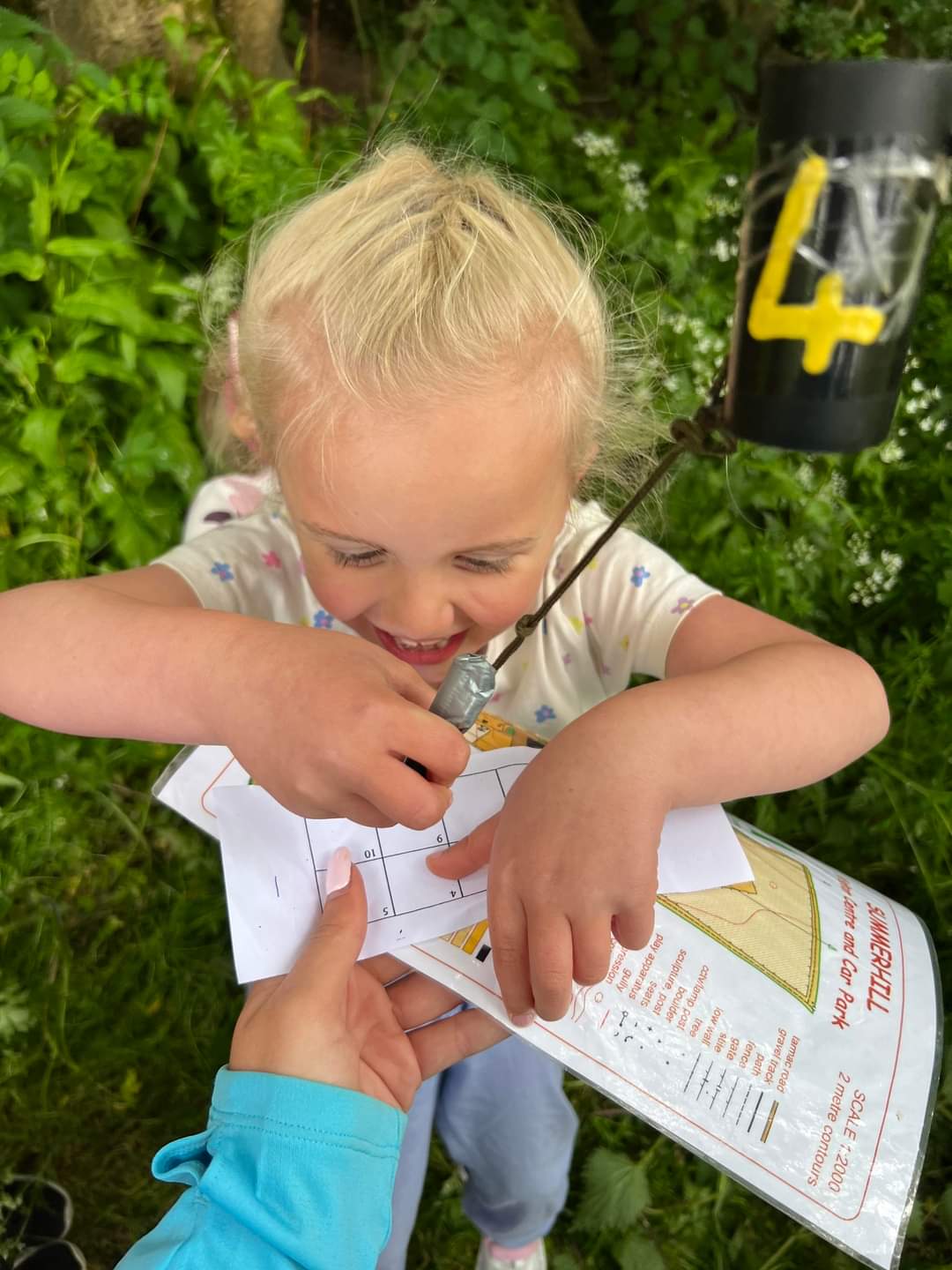
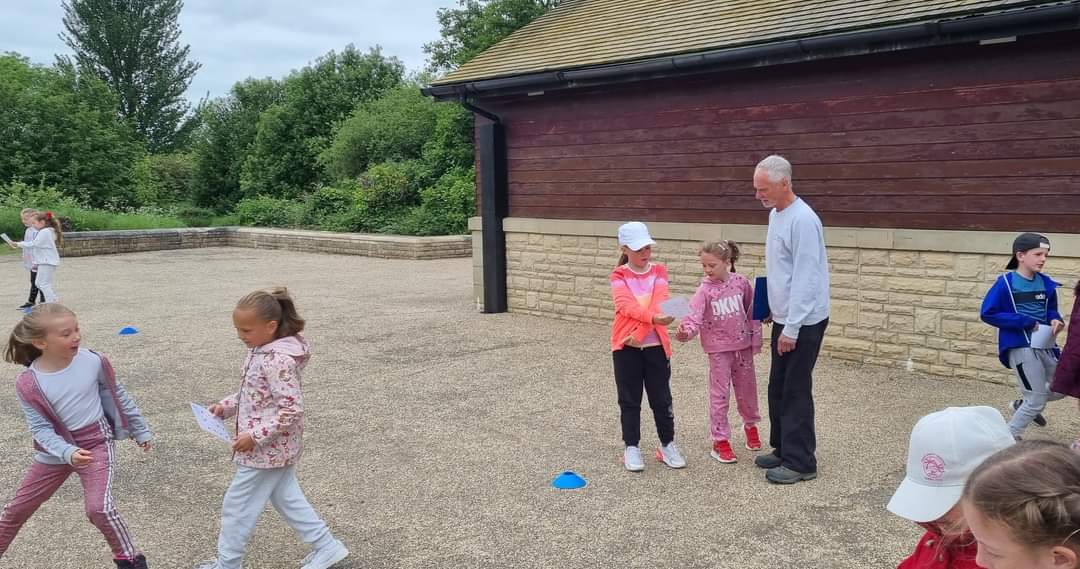
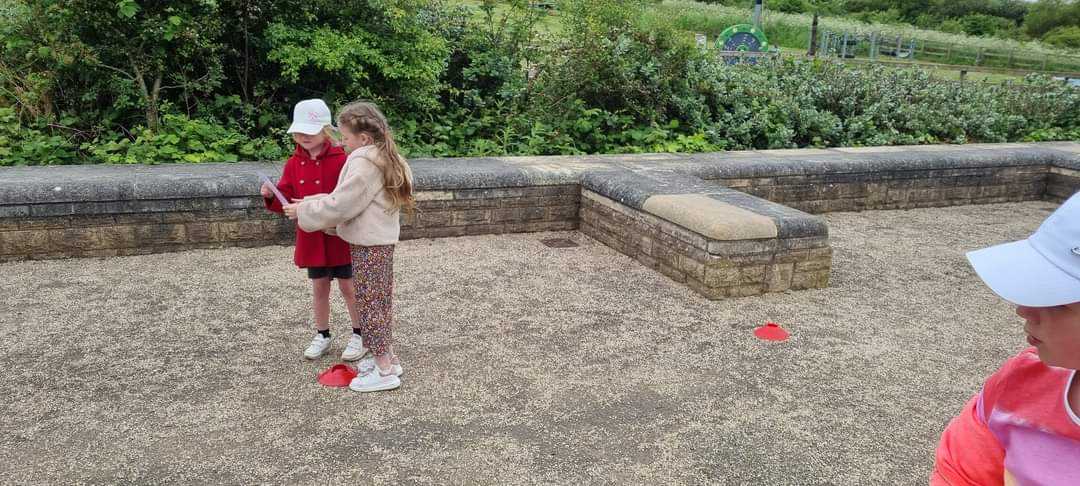
By the end of Key Stage 2
Pupils should extend their knowledge and understanding beyond the local area to include the United Kingdom and Europe, North and South America. This will include the location and characteristics of a range of the world’s most significant human and physical features. They should develop their use of geographical knowledge, understanding and skills to enhance their locational and place knowledge.
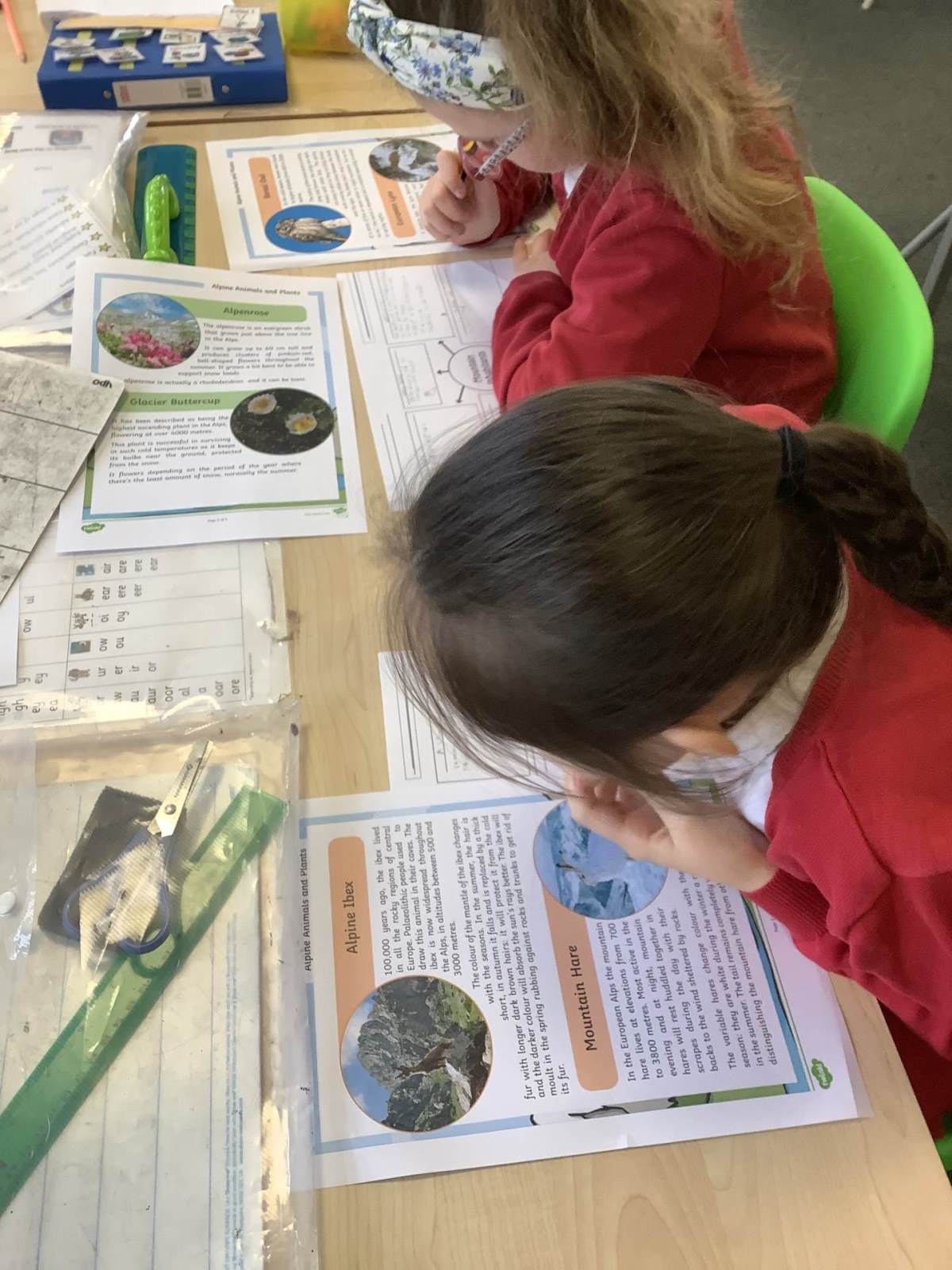
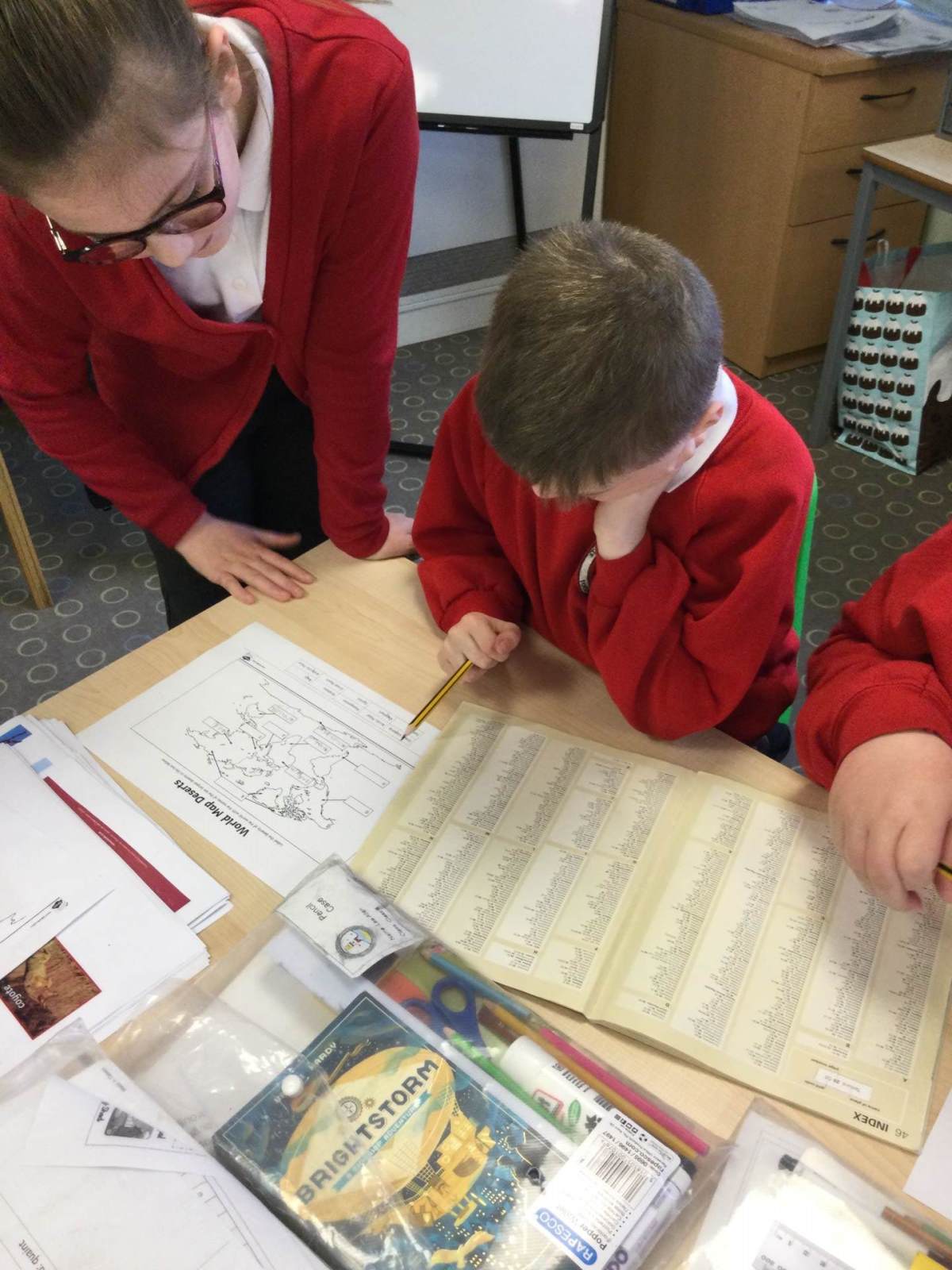
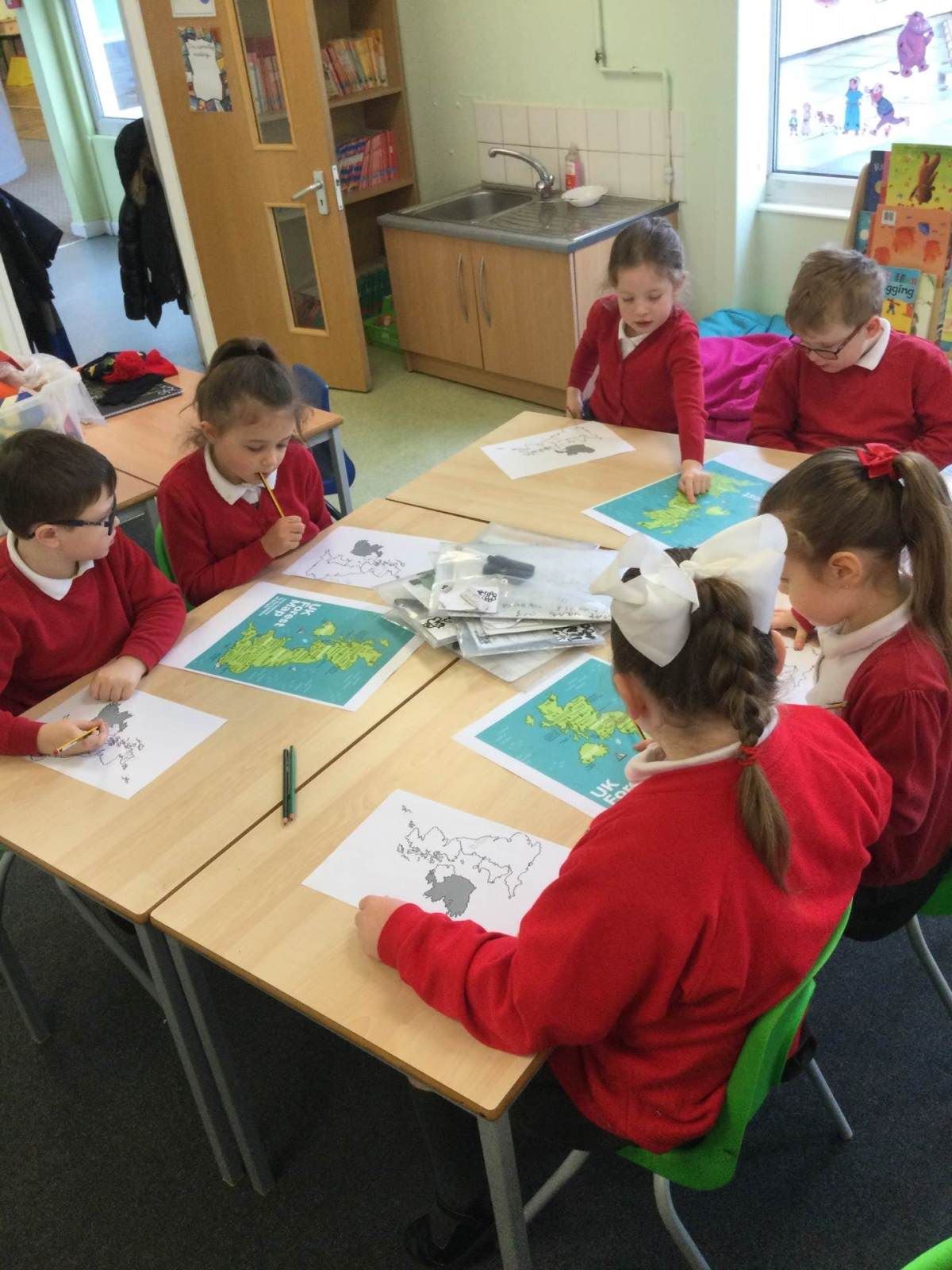
SEND Statement
St. Helen's promotes a curriculum that puts all pupils, regardless of their needs, at the heart of what we do. By building mutual respect, we accept others for their differences believing that everyone is special, and everyone has something to offer. Our inclusive and enriching curriculum, written for all children, provides pupils with meaningful and aspirational experiences as well as promoting personal growth for life-long learning. When the curriculum needs adapting, to suit the needs of individual children, appropriate modifications are made by the class teacher with support of the SENDCo and the Curriculum Subject Lead.
Geography Mapping
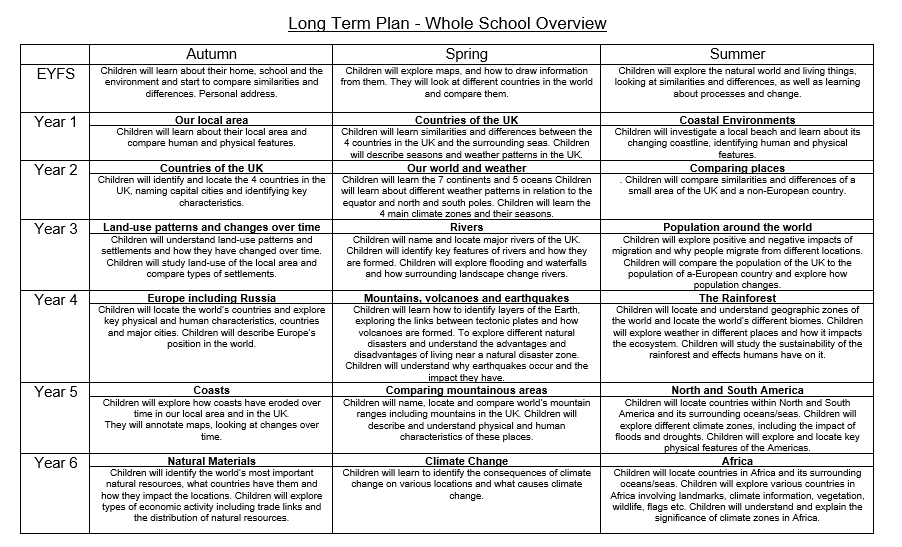
Cultural Capital
Central to the teaching of geography is the enrichment of the curriculum through trips and visits. Children have regular fieldwork activities within the school grounds, surrounding areas and the local and/or the regional area. These first-hand experiences provide children with a contextual understanding of the subject.
We promote a language-rich geography curriculum which is carefully planned in each topic. This is important to prepare our children for future success.
Another significant area in geography is the links to other curriculums. Our children have started to use their geographical knowledge in class discussions. We want pupils to feel excited and engaged with the world around them and to draw upon their knowledge and experiences. We see links with every subject and find our children do this naturally. Recent examples include measuring distances in Russia, identifying countries within Europe on a map (to look at Allies and Axis powers in WW2) and climate change links to science.


Books we use to support our curriculum.
EYFS
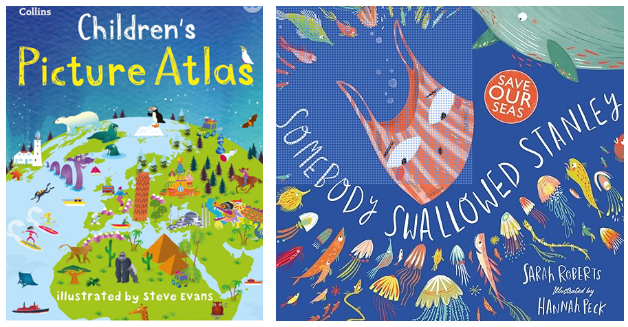
KS1
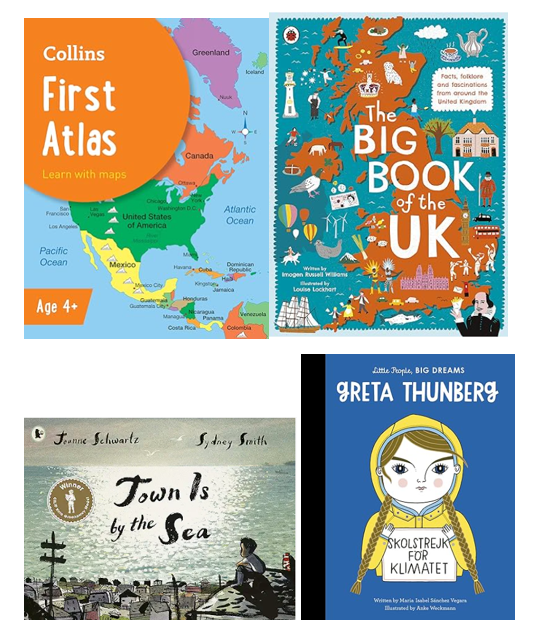
KS2
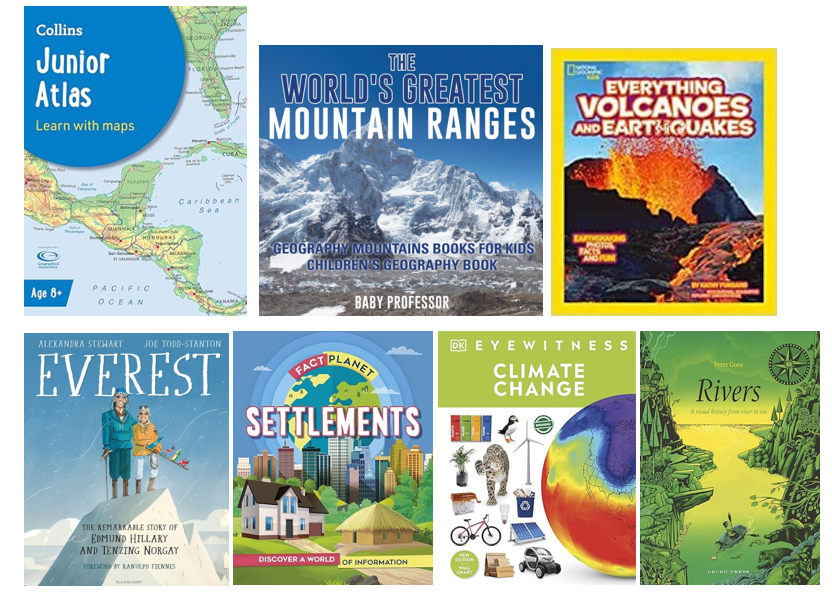
Useful links
If you would like to know more about our geography curriculum, please contact our geography subject leader via the school office.
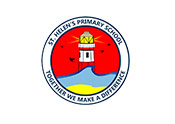


Close